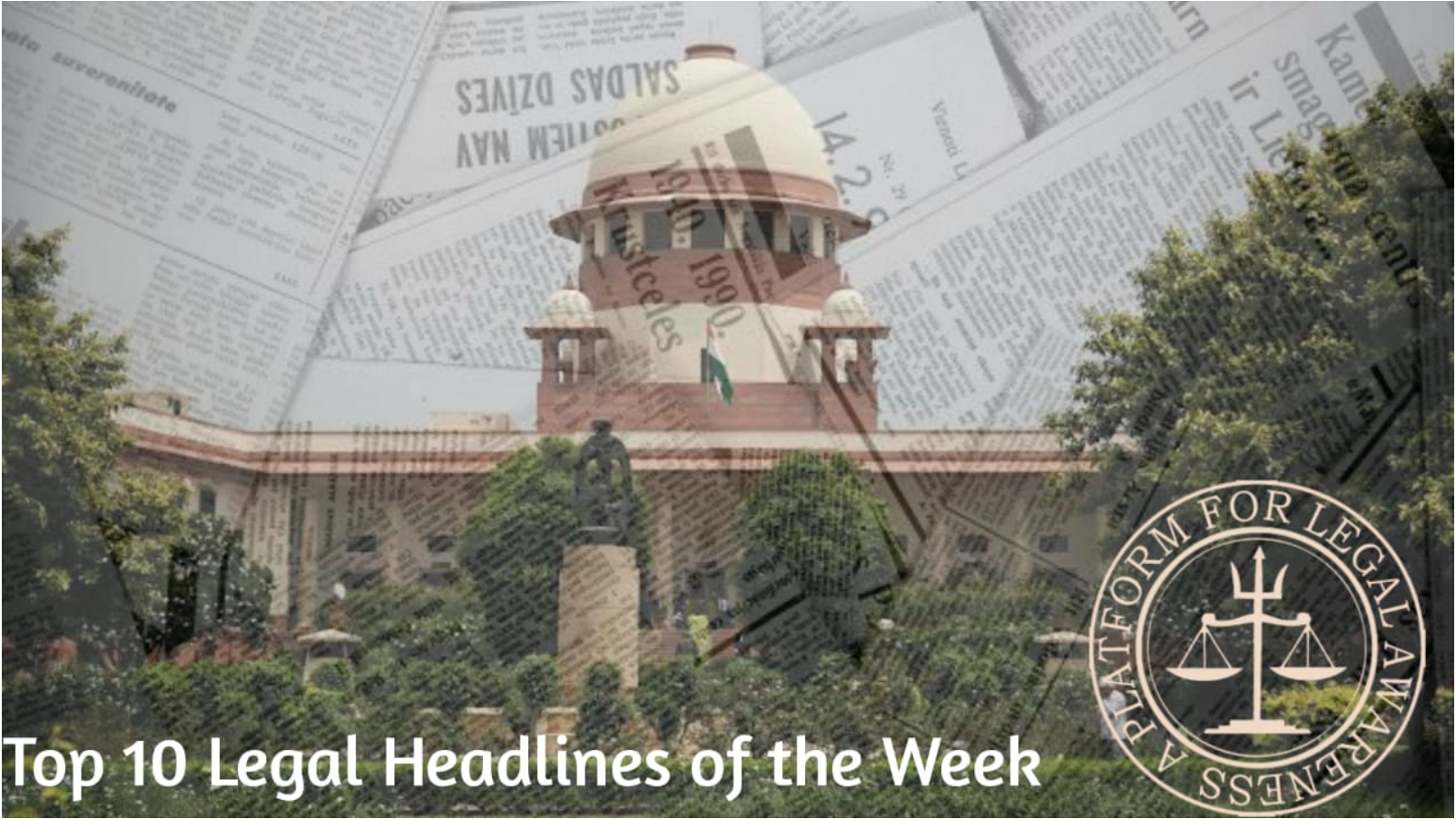1. Supreme Court Issues Notice to States, UTs Over Non-Compliance with Online RTI Portal Setup
The Supreme Court has issued notices to all States and Union Territories after a contempt petition by Anuj Nakade alleged non-compliance with its March 2023 directive to establish online Right to Information (RTI) portals. States like Andhra Pradesh and West Bengal are yet to comply. The plea also flagged usability issues with existing portals and incomplete onboarding of public authorities. The Court has requested responses from all by October 21.
2. Supreme Court Criticizes Karnataka HC Judge Over "Pakistan" Remark, Accepts Apology
The Supreme Court on Wednesday rebuked Karnataka High Court judge Justice V Srishananda for his controversial remark comparing a Bengaluru locality to "Pakistan." Chief Justice DY Chandrachud emphasised that no part of India should be referred to in such terms, as it undermines the nation's territorial integrity. The judge has since apologised, and the Court has closed the proceedings, highlighting the importance of judges being mindful of their remarks, especially in the era of live-streaming. The CJI stressed the need for impartiality and careful communication in judicial settings.
3. Supreme Court: Trial Courts Should Decide Common Intention in Crimes
The Supreme Court ruled that trial and high courts should decide whether individuals had a common intention to commit a crime under Section 34 of the Indian Penal Code. The judgment clarifies that common intention can be formed at any moment during the crime and does not require prior conspiracy or meetings. The decision came in the case of Baljinder Singh @ Ladoo v. State of Punjab, stressing that each case must be analysed based on its specific facts.
4. Supreme Court Dismisses Gujarat's Plea to Review Bilkis Bano Case Ruling
The Supreme Court rejected the Gujarat government’s plea to review its January 2024 verdict, which cancelled the remission granted to 11 convicts in the Bilkis Bano case. These convicts were involved in the 2002 Gujarat riots, where Bilkis Bano was gang-raped, and her family members were murdered. The Gujarat government argued that certain adverse remarks made by the court in the January ruling, particularly about the state's complicity and "usurpation of power," were unjust. However, the Supreme Court found no merit in the review petition, emphasising that the state's remission decision was flawed and ordered the convicts to surrender.
5. Supreme Court to Consider PIL for SIT Probe into Controversial Badlapur Encounter
A Public Interest Litigation (PIL) has been filed in the Supreme Court, demanding a Special Investigation Team (SIT) probe into the controversial Badlapur encounter. This encounter involved the police killing an accused in a sexual assault case, which has sparked concerns over the legitimacy of the action. The PIL argues that the incident might have been an extrajudicial killing, bypassing the legal process, and calls for an independent investigation to ensure accountability. The Supreme Court's response could significantly impact police conduct in similar future cases.
6. Supreme Court Bars Controversial Remarks of Allahabad HC Judge on Religious Conversion
The Supreme Court has prohibited the use of controversial comments made by an Allahabad High Court judge, who claimed that allowing conversions to Christianity could make Hindus a minority in India. This ruling came as the Court granted bail to Kailash, accused of unlawfully converting individuals in Uttar Pradesh. The Supreme Court emphasised that the judge's remarks were irrelevant to the case and should not be cited in any legal proceedings, as they could undermine the impartiality of the judiciary.
7. FIR Filed Against Nirmala Sitharaman and BJP Leaders in Electoral Bond Case
A Bengaluru special court has ordered the police to register an FIR against Finance Minister Nirmala Sitharaman, unnamed Enforcement Directorate (ED) officials, and various BJP leaders for their alleged involvement in a conspiracy tied to the electoral bond scheme. The complaint, filed by activist Adarsh R. Iyer, claims that the accused facilitated extortion under the guise of political funding, pressuring companies like Sterlite and Vedanta to purchase bonds. This case underscores ongoing concerns regarding the electoral bond system and its implications for transparency in political financing.
8. Supreme Court Dismisses Dowry Complaint as Malicious
The Supreme Court of India has dismissed a dowry harassment complaint, ruling it was filed with the intent to harass the accused. The bench noted that continuing the case would constitute an abuse of the legal process, as the allegations were deemed unsubstantiated. This decision reinforces the judiciary's commitment to preventing the misuse of laws meant to protect individuals from harassment. The ruling serves as a crucial reminder of safeguarding legal protections against frivolous claims.
9. Allahabad High Court Considers Contempt Action Against Senior Advocate for Disrespectful Conduct
The Allahabad High Court has mooted contempt proceedings against Senior Advocate Satish Chandra Mishra for shouting at judges during a recent hearing. The incident occurred on September 27 when the court declined to grant an interim order in Mishra's favour regarding a tender dispute involving the Nagar Nigam in Lucknow. The judges noted that Mishra's conduct was an attempt to undermine the court's dignity and referred the matter to the Chief Justice for further action. The case will continue on September 30, contingent on submitting requested records.
10. Supreme Court Expresses "Grave Concern" Over Missing Children, Orders State Action
The Supreme Court has called for urgent action regarding the alarming number of missing children since 2020, directing all states and union territories to provide data on cases of abduction and recovery. Highlighting a public interest litigation by Guria Swayam Sevi Sansthan, the court noted a well-established interstate child trafficking network, evidenced by multiple FIRs. It mandated that states report on their mechanisms for tracking missing children, including the status of Anti-Human Trafficking Units (AHTUs). The next hearing is scheduled for October.

